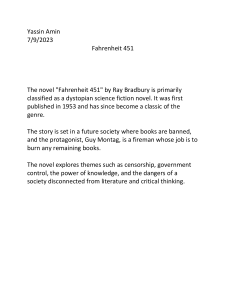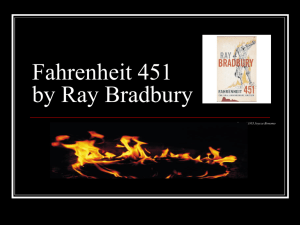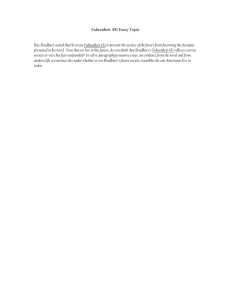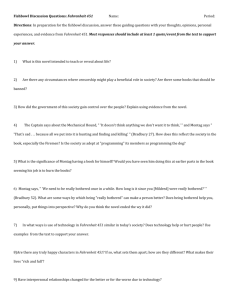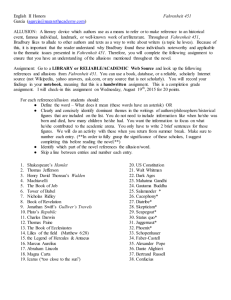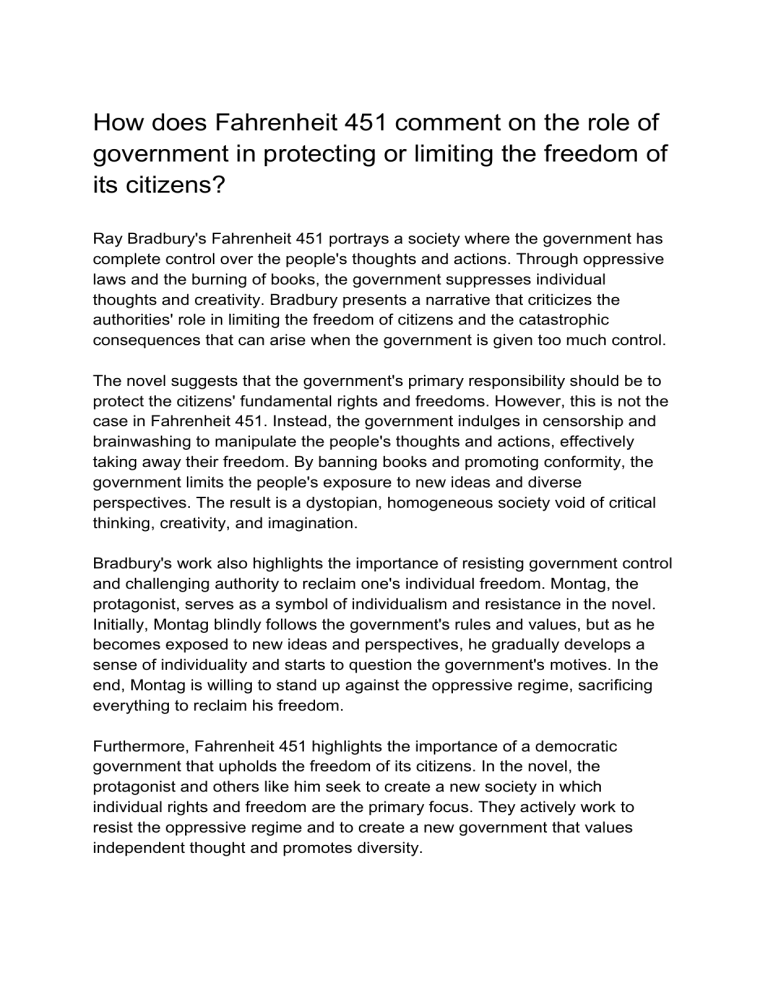
How does Fahrenheit 451 comment on the role of government in protecting or limiting the freedom of its citizens? Ray Bradbury's Fahrenheit 451 portrays a society where the government has complete control over the people's thoughts and actions. Through oppressive laws and the burning of books, the government suppresses individual thoughts and creativity. Bradbury presents a narrative that criticizes the authorities' role in limiting the freedom of citizens and the catastrophic consequences that can arise when the government is given too much control. The novel suggests that the government's primary responsibility should be to protect the citizens' fundamental rights and freedoms. However, this is not the case in Fahrenheit 451. Instead, the government indulges in censorship and brainwashing to manipulate the people's thoughts and actions, effectively taking away their freedom. By banning books and promoting conformity, the government limits the people's exposure to new ideas and diverse perspectives. The result is a dystopian, homogeneous society void of critical thinking, creativity, and imagination. Bradbury's work also highlights the importance of resisting government control and challenging authority to reclaim one's individual freedom. Montag, the protagonist, serves as a symbol of individualism and resistance in the novel. Initially, Montag blindly follows the government's rules and values, but as he becomes exposed to new ideas and perspectives, he gradually develops a sense of individuality and starts to question the government's motives. In the end, Montag is willing to stand up against the oppressive regime, sacrificing everything to reclaim his freedom. Furthermore, Fahrenheit 451 highlights the importance of a democratic government that upholds the freedom of its citizens. In the novel, the protagonist and others like him seek to create a new society in which individual rights and freedom are the primary focus. They actively work to resist the oppressive regime and to create a new government that values independent thought and promotes diversity. In conclusion, Fahrenheit 451 portrays a dystopian society where the government's role is to limit freedom and suppress individualism. The novel emphasizes the importance of the government striking a balance between protecting its citizens and ensuring their freedom. Through the character of Montag, the novel shows the transformation of an individual from conformity to resistance and emphasizes the importance of challenging authority to reclaim one's freedom. The novel aims to serve as a warning against the dangers of government control and the importance of staying vigilant in protecting individual rights and freedoms. References: Bradbury, R. (2012). Fahrenheit 451. Simon and Schuster.
